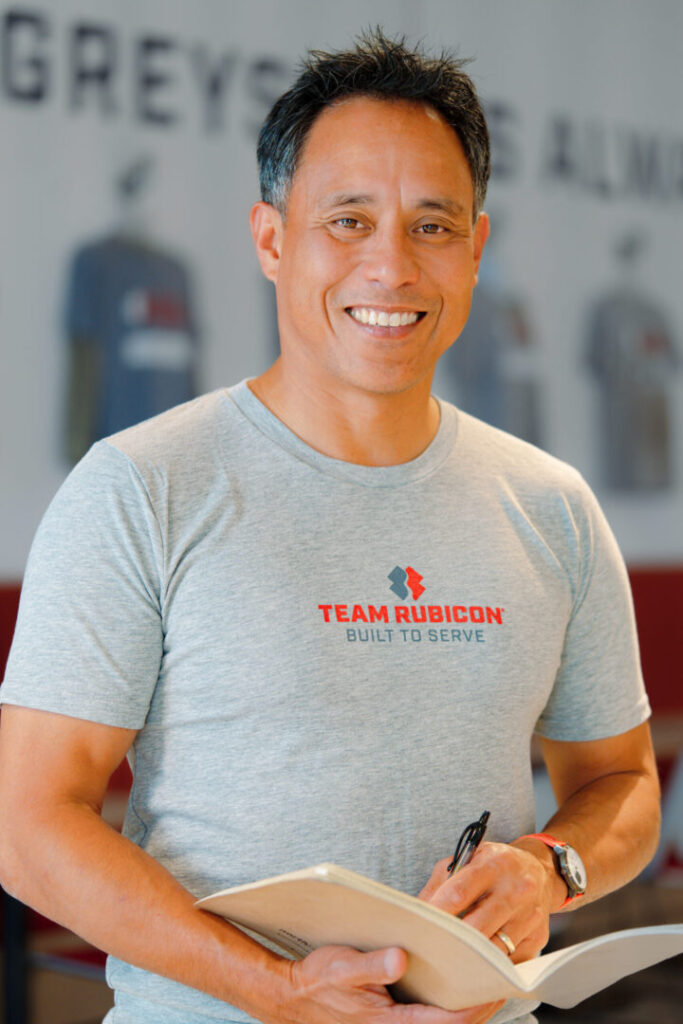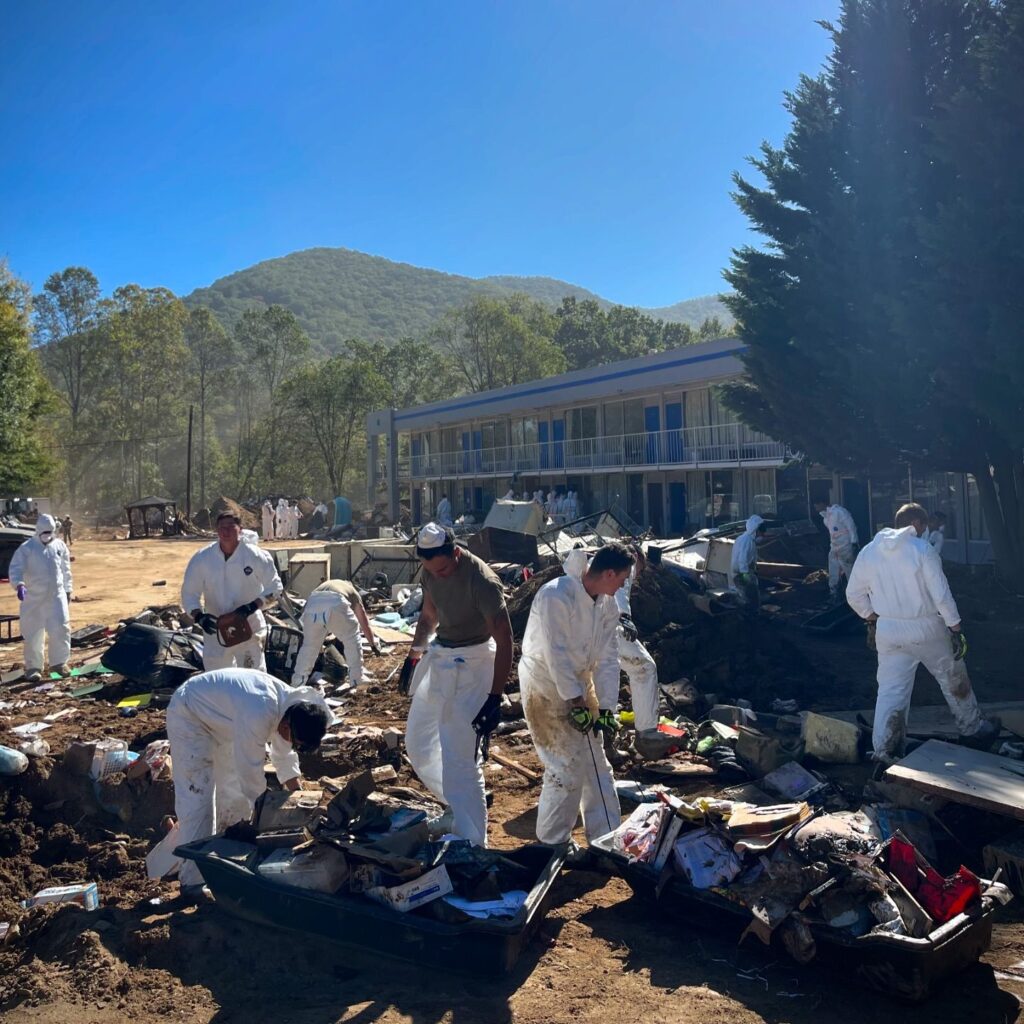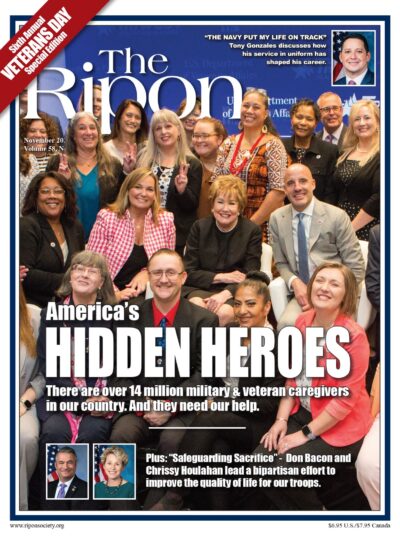
In 2010, a Marine Corps veteran saw the destruction caused by the Haiti earthquake and felt compelled to help. He, along with seven others, saw an opportunity to use their skills in a time of need and took the initiative to organize and deploy, aiding hundreds of the injured. Fifteen years later, this group has expanded to over 180,000 members, mostly veterans.
Team Rubicon, a veteran-led humanitarian nonprofit, operates on a global scale to support communities before, during, and after disasters and crises. Since its founding, the organization has responded to over 1,200 emergencies worldwide, ranging from hurricanes in the U.S. to humanitarian crises overseas, such as the 2023 Morocco earthquake, always demonstrating military precision coupled with humanitarian compassion. In 2024 alone, our volunteers, known as Greyshirts, have already aided more than 2.9 million individuals and numerous communities across the country.
At Team Rubicon, our volunteers are often first to respond after a disaster and stay long after the news crews leave. For example, following Hurricane Helene’s devastation from Florida to North Carolina, we quickly deployed teams to clear roads and provide essential services. Weeks later, our volunteers are still hard at work, launching from 12 operating sites across five states, helping to restore facilities, clear debris, and make home repairs.
Team Rubicon, a veteran-led humanitarian nonprofit, operates on a global scale to support communities before, during, and after disasters and crises.
The overwhelming need I have seen recently with Hurricanes Helene and Milton are not outliers; these disasters of increasing scale and damage are becoming a new normal. The frequency of natural disasters is increasing at an alarming pace, posing severe challenges to communities worldwide. From devastating hurricanes to relentless wildfires, the need for robust disaster response mechanisms has never been greater. Team Rubicon has discovered that veterans, with their unique blend of skills and experience, can be an enabling asset before, during, and after such crises. Their military training equips them to act decisively and efficiently in chaotic environments, helping to aid impacted people and rebuild communities in the wake of catastrophe.
It is perfect synergy. America’s veterans originate from an all-volunteer force, indicating their inherent willingness to serve. They are naturally inclined to assist those in need and are dedicated to serving both society and the nation. This volunteer force is essential for our disaster response efforts, whether it’s determining which neighborhood to prioritize after a flood or clearing paths through tornado wreckage.
I had the chance to observe the havoc brought by Hurricane Helene up close. The destructive scenes were immense, but the determination and resilience of our volunteers were incredibly moving. With my background as a former Navy strike-fighter squadron commander and TOPGUN instructor, I’ve encountered many challenging situations. The perseverance and resolve of the Sailors always inspired me, and the same is true for Team Rubicon’s volunteers. Witnessing the devastation in Asheville, North Carolina, was overwhelming, yet the commitment and efficiency of our Greyshirts are consistently impressive. Their capacity to adapt, lead, and serve under the toughest conditions reflects the training and experiences they bring from their military service.

In 2024 alone, our volunteers have already aided more than 2.9 million individuals and numerous communities across the country.
While Team Rubicon has made significant progress in aiding communities to prepare for and recover from disasters, much work remains. These communities and our veteran volunteers can’t accomplish this on their own. Congress plays a crucial role in supporting disaster survivors and our mission by enacting policies that streamline disaster assistance and reduce the burden on affected communities.
To that end, we urge Congress to return to session to ensure funding for the Disaster Relief Fund, which is the primary source of financing for the government’s domestic disaster relief programs. If annual appropriations for the upcoming fiscal year are not enacted before the end of this fiscal year, the unobligated balance in the DRF could drop to levels that jeopardize disaster response operations.
Additionally, we call on Congress to reconvene and replenish funding for the Small Business Administration’s disaster loan program, which was depleted following this year’s back-to-back historic hurricanes. The SBA’s low-interest disaster loans assist homeowners, renters, nonprofit organizations, and businesses of all sizes in recovering from declared disasters.
As we celebrate our veterans, let’s also acknowledge their contributions outside of military service. At Team Rubicon, we’re honored to provide veterans with opportunities to continue serving. Together, we can build a more resilient world, one community at a time.
Support us with a donation or join us at TRUSA.org.
Art delaCruz serves as Chief Executive Oficer of Team Rubicon. Born and raised in Minnesota to parents who immigrated from the Philippines and met at the university, he spent 22 years in the U.S. Navy, including serving as a Commanding Officer of a U.S. Navy Strike Fighter Squadron, a naval aviator, and a TOPGUN instructor. He joined Team Rubicon in 2016 as Chief Operating Officer, and then as President and COO. In July of 2021, he took over as the organization’s CEO.




